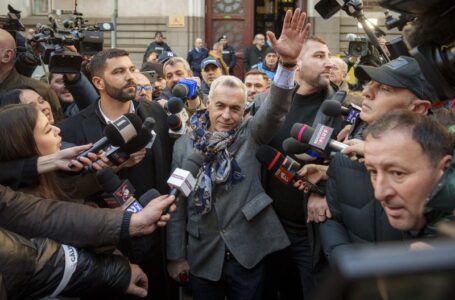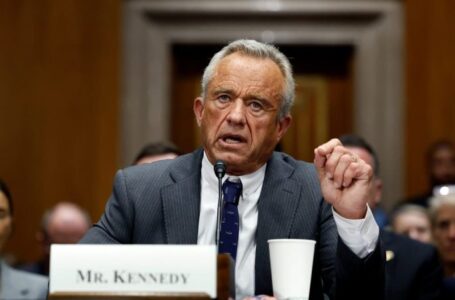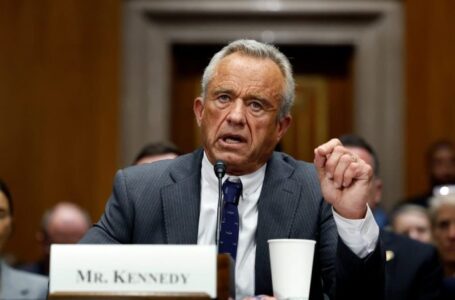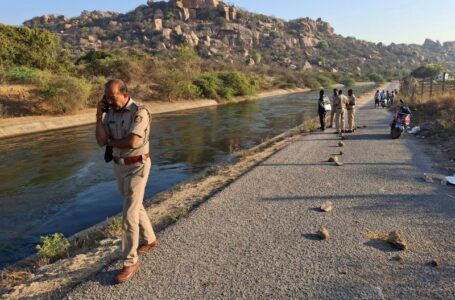Chaos erupts in Romania after far-right frontrunner banned from presidential vote
In a country splintered by civil war, could Syria’s rebels usher in a new dawn?
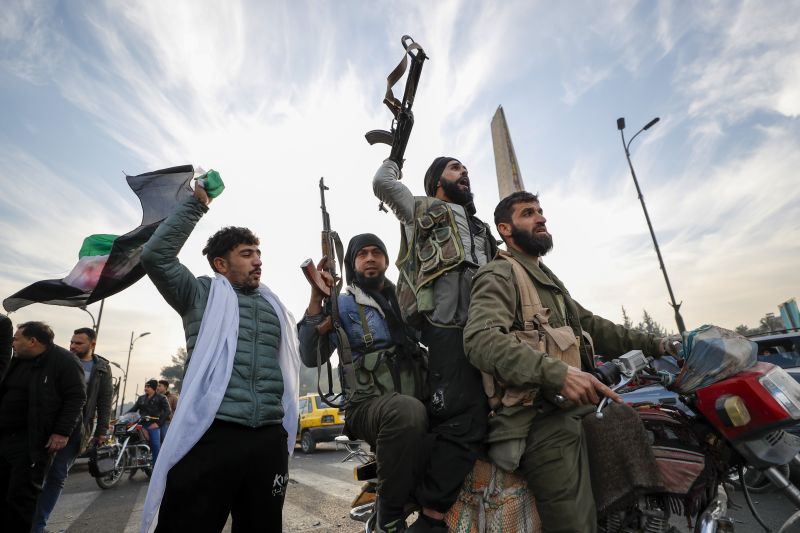

The red, white, green and black Free Syrian Army flag flew over Damascus on Sunday as thousands of residents lined the main square in bursts of defiant jubilation – after President Bashar al-Assad relinquished his grip on power.
Over the past 11 days, a rebel alliance charged through Syria in the boldest challenge to the Assad rule in years – following decades of brutal reign by the Assad dynasty marked by fighting, bloodshed and an oppressive political crackdown.
“This is a regime that, for over 50 years, under the mantra of freedom, unity and socialism, oppressed, tortured and disappeared many millions in Syria.”
Now, as the anti-regime coalition starts to disband Assad’s military, and lays out its vision for a post-Assad Syria, experts wonder if the next phase will be a new dawn for a people strangled by a brutal autocracy – or whether sectarianism will bring a different type of authoritarian rule.
‘Extremely challenging’ transition of power
Jolani declared victory for the “entire Islamic nation” on Sunday, in his first public remarks since the rebel-led coup, which he said “marks a new chapter in the history of the region.”
“Syria is being purified by the grace of God Almighty and through the efforts of the heroic Mujahideen,” Jolani told a crowd at the majestic Umayyad Mosque, in Damascus. He denounced “Iranian ambitions” in Syria, where Tehran and its proxy Hezbollah were core backers of Assad’s government.
“My heart longed for this moment,” added Jolani. “There is not a single household in Syria that the war has not touched.”
Before armed fighters set off a stunning offensive last month, Assad’s chokehold had split Syrian territory among regime and rebel forces – some of which are backed by international powers, including the US and Turkey.
Soon after the fall of Damascus to southern rebels, Syrian Prime Minister Mohammad Ghazi Al-Jalali pledged to cooperate with the rebels and endorse “a smooth and systematic transition of government functions” and preserve “state facilities,” in a recorded message.
Jolani echoed a similar memo, saying that all public institutions would remain under the prime minister’s jurisdiction “until they are officially handed over.” Syrian rebels also claimed that senior regime officials were preparing to defect to them in Damascus.
But delegating a new governing system will be “extremely challenging” for a “diverse coalition” of armed fighters, according to Jerome Drevon, a senior analyst at the Brussels-based think tank International Crisis Group.
Human rights concerns
As the rebels pressed on, so did Jolani’s charm offensive. The militant leader, who emerged as a young fighter for al-Qaeda against the US in Iraq, has sought to diminish the shadow of his extremist roots.
The United States designated HTS a Foreign Terrorist Organization in 2018 and placed a $10 million bounty on Jolani.
Millions of Syrians, including those from minority Christian and other religious communities, are haunted by a legacy of persecution suffered at the hands of extremist groups like al Qaeda and ISIS. Human rights advocates have accused HTS and other anti-regime groups of cracking down on residents in areas under their control – including in the northwestern Idlib, western Homs, and Aleppo governorates – and tortured and abused dissidents.
“Anti-government armed groups have promised restraint and to uphold humanitarian norms, but they will ultimately be judged by their conduct not their words,” Adam Coogle, deputy Middle East director at Human Rights Watch, said in a statement on December 4.
In a state TV address on Sunday, a Syrian rebel commander insisted that “all sects” would be protected, adding: “Syria is for everyone, without exception … Syria is for the Sunni, the Druze, the Alawite.”
Maksad, the senior fellow at the Middle East Institute, warned the fall of the Assad regime could be a “moment of potential peril” for minority communities in the country, including religious groups like Alawites, Ismailis, Druze and Christians.
“There are concerns about the more Islamist jihadi elements of this rebel force,” he said, particularly when it comes to Hayat Tahrir Al-Sham (HTS), the main group driving the country’s armed opposition, which has been designated a terrorist group by the US and many other countries,” said Maksad.
‘Heroic lions who made us proud’
But on the streets of Syria, such concerns were eclipsed by scenes of excitement and mass celebration. Thousands of people assembled at the foot of the main square in Damascus, where rebels ransacked Assad’s residence.
“After the fear that he (Assad) and his father made us live in for many years, and the panic and state of terror that I was living in, I can’t believe it,” Omar Daher, a 29-year-old lawyer, told the Associated Press.
Another Damascus resident, Mohammed Amer Al-Oulabi, 44, said: “From Idlib to Damascus, it only took them (the opposition forces) a few days, thank God. May God bless them, the heroic lions who made us proud.”
And further afield, Syrian refugees forced to flee the war shared their hopes of returning to a peaceful country.
“We thank our people in Syria and the free ones, for saving us from the injustice,” Wissam Ahmed, a displaced Syrian in Lebanon, told Reuters on Sunday. “We’re going to Syria, God willing, to rebuild our future and our homes. The feeling is really great, we cannot describe it more.”
This story has been updated with additional developments.

